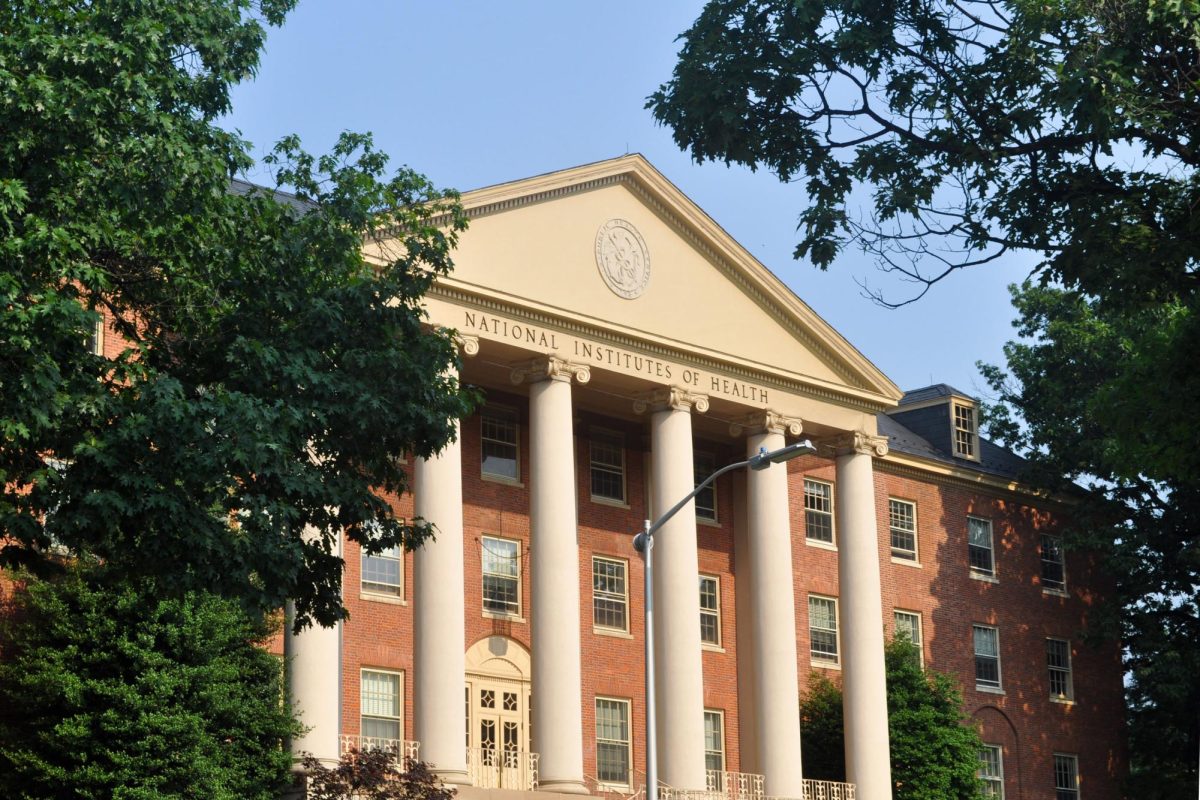GW was one of the first institutions in the country to administer doses of the first mRNA HIV vaccines to human test subjects late last month.
The School of Medicine and Health Sciences and its Vaccine Research Unit collaborated with Moderna to test the safety of the vaccine and the immune responses of two participants in the Phase 1 clinical trial. The International AIDS Vaccine Initiative and the Bill & Melinda Gates Foundation sponsored the mRNA HIV vaccine research, according to an International AIDS Vaccine Initiative release.
David Diemert, the clinical director of the GW Vaccine Research Unit, and Jeffrey Bethony, a professor of microbiology, immunology and tropical medicine, said in an email that the research unit’s team administered the first HIV vaccine dose at the Medical Faculty Associates building in late January. The said researchers are testing two mRNA HIV vaccines in Phase 1, which is the first human clinical trial.
Four institutions including GW enrolled 56 HIV-negative adult participants for the vaccines’ clinical trials, according to the release. The release states 48 patients will receive one or two doses of the primary HIV mRNA vaccine, 32 will receive an additional booster dose and eight participants will receive the booster dose alone.
“The vaccines we’re testing in this study required a lot of knowledge about the human immune response to HIV and the retrovirus itself,” Diemert and Bethony said in the joint email. “It is part of a very large team effort with groups at other institutions both here in the U.S. and abroad.”
Diemert and Bethony said GW’s Clinical Immunology Laboratory played a critical role in creating and optimizing the necessary sample methods to collect blood and tissues from the participants for Phase 1.
They said the research unit’s clinical team and the laboratory developed a procedure called ultrasound-guided lymph node fine needle aspiration. During the procedure, medical professionals would drain a lymph node – structures within the immune system that filter foreign substances like viruses – to remove cells from the germinal center, where white blood cells activate and mutate, using a needle guided by the ultrasound imaging.
They said the technique is unique to the HIV vaccine trials because the vaccine targets the germinal cells in the lymph node to stimulate B cells – white blood cells that produce antibodies – to deter them from entering the blood circulation.
Diemert and Bethony said the mRNA HIV vaccine aims to block the replication of HIV strains and stimulate the production of broadly neutralizing antibodies – which control the virus within HIV-positive patients’ immune systems.
“As with all vaccines at this investigational stage in their development, the primary outcome of the study is to determine the safety and immunogenicity of the vaccine for the first time in humans,” they said. “It is the first step in a long developmental process for new vaccines.”
Diemert and Bethony said the research team hasn’t indicated a specific age group or population for the clinical trials’ adult participants, and they hope the vaccines will be made available to protect everyone at risk of HIV infection in the future.
They said they look forward to making a significant contribution toward developing a vaccine to protect people against HIV infection, noting that previous vaccine trials have been unsuccessful in combating the HIV pathogen.
“Using this new strategy, we hope to finally have a critical tool to protect individuals against this pathogen and alleviate the suffering that it has brought,” Diemert and Bethony said.
Infectious diseases experts said the HIV vaccine used mRNA technology, which helped create the COVID-19 vaccine and demonstrates how COVID-19 research can advance treatments for other health issues like sexually transmitted diseases and cancer.
Patrick Jackson, an assistant professor of medicine in the Division of Infectious Diseases and International Health at the University of Virginia, said medical researchers use mRNA technology to inject patients with instructions to create their own viral protein cell and develop an immunity to the viral cell. He said the mRNA technology in the HIV vaccine can produce the viral protein similar to how the body could create the actual HIV viral protein, allowing researchers to easily and quickly manipulate the mRNA itself to create antibodies.
Jackson said he expects to see more vaccines with mRNA technology that can adapt to a person’s immune system more rapidly, allowing researchers to try different faster vaccination methods than a protein-based vaccine, like flu vaccines.
“I think that’s going to be the main advantage here, is that they will be able to get some initial responses and learn how their initial priming dose and boosting dose works in the body, and they’ll be able to adapt that and come up with new boosts much more rapidly and figure out what the optimal kind of vaccination strategy is going to be,” he said.
Eleanor Wilson, the associate director of clinical research at the School of Medicine Institute of Human Virology at the University of Maryland, said HIV is “tricky” because it targets the cells in one’s immune system that should be responding to an infection.
She said traditional vaccine strategies like administering a weaker strain of HIV can’t guarantee reliable results because researchers aren’t certain if they’ve actually weakened the strain enough to not infect a patient with HIV.
Wilson added that the continually changing mRNA technology in the COVID-19 and HIV vaccines allows researchers to consider a preventative vaccine to protect patients from HIV and also potentially create a therapeutic vaccine to reduce immune defects in HIV-positive patients in the future.
“Everything we’re learning in real time about COVID will not only inform our response to COVID but will inform our responses to a broad range of other public health threats like HIV, other sexually transmitted infections, other epidemic infections that we see periodically,” she said.








